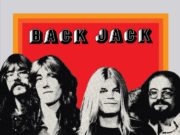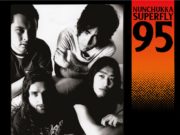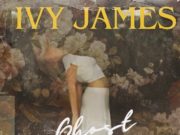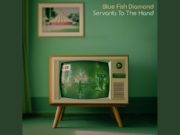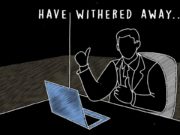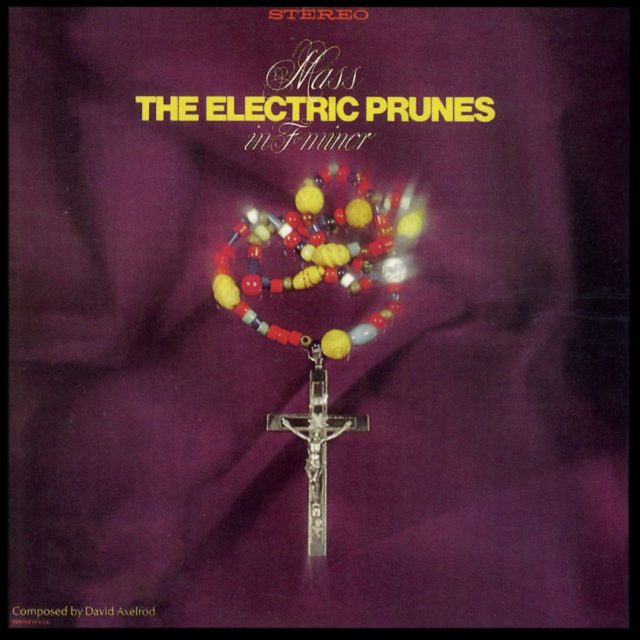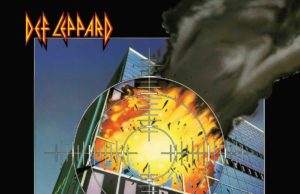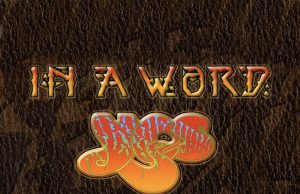 I was sifting through the discount bins of one of my favourite local record haunts recently. I found a few treasures and a couple of curiosities. Primarily, I found four LPs by Los Angeles 1960s psychedelic pop band The Electric Prunes. That is probably more than you’d find in a store with an actual Electric Prunes section — not that I’ve ever encountered one. Nor an electric prune, thankfully.
I was sifting through the discount bins of one of my favourite local record haunts recently. I found a few treasures and a couple of curiosities. Primarily, I found four LPs by Los Angeles 1960s psychedelic pop band The Electric Prunes. That is probably more than you’d find in a store with an actual Electric Prunes section — not that I’ve ever encountered one. Nor an electric prune, thankfully.
The albums I snagged included their self-titled 1966 debut — which I’m delighted about because I sold my own copy a few years ago and have regretted it ever since. This one’s in much nicer shape, too. In fact, the sleeve must have still been in shrinkwrap until very recently. Then there were two copies of the followup, 1967’s Underground — one a U.S. stereo copy and the other a Canadian mono. I don’t love this record, so I bought these for resale.
The fourth album was one I’ve never seen before — 1968’s Mass In F Minor, the band’s third release. This one is practically mint, and I think I know why — it’s fucked up. Suddenly, the band went from singing about kissing groovy girls and having freaky dreams about kissing groovy girls, to making a religious concept album designed to be a ceremonial mass — sung in Latin and Greek and set to psychedelic music. As they say, I don’t hear a single. Not only that, but the band didn’t speak Latin or Greek and most of the musicians didn’t have the chops to play the music which was forced upon them by their label. What? Yeah. I know. Here’s how it happened:
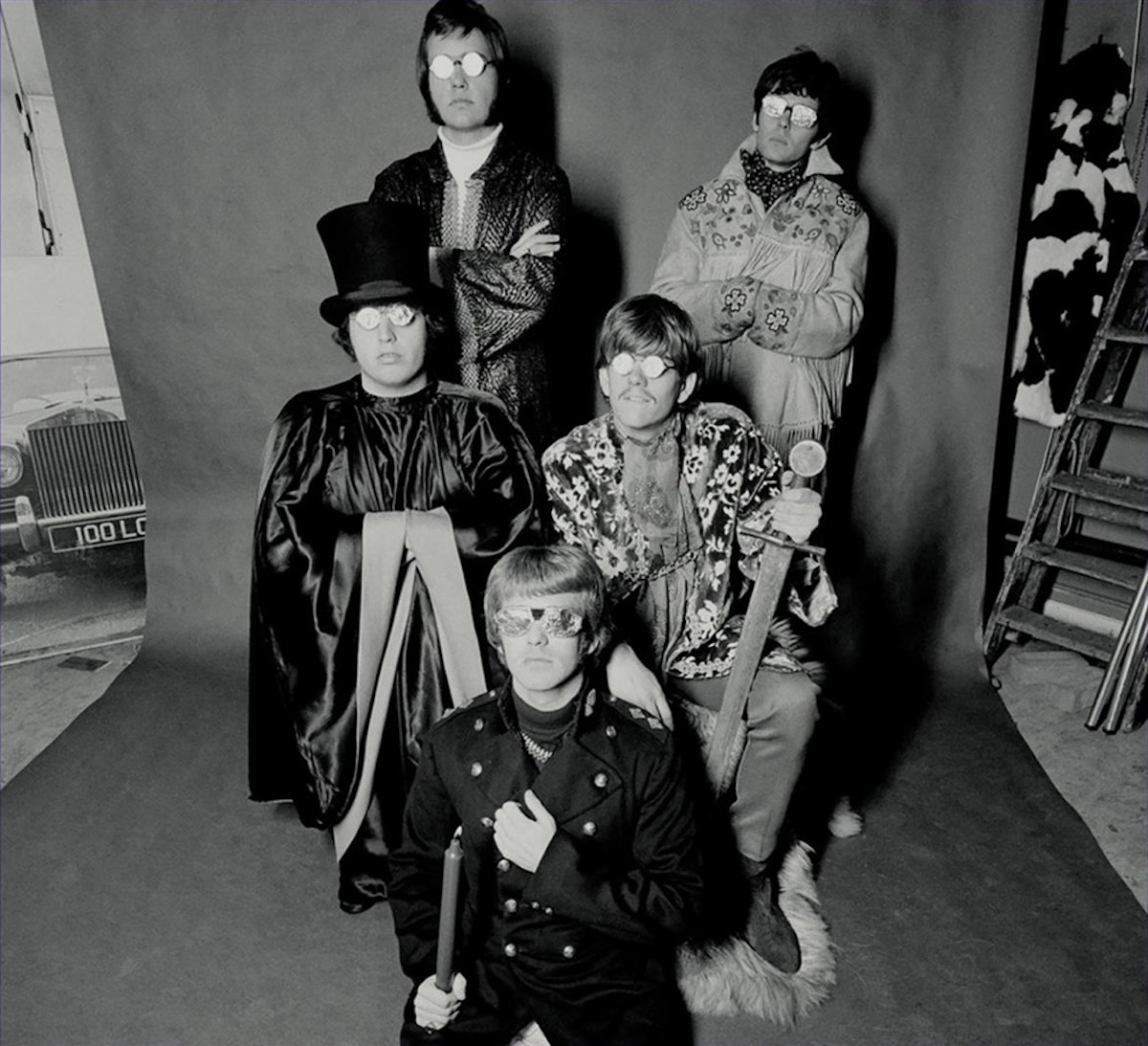
The band started off as a garage band called The Sanctions, who then became Jim And The Lords — named after lead singer James Lowe. A real estate woman at their rehearsal space introduced them to her friend David Hassinger, who worked at RCA studios and was the engineer for The Rolling Stones’ Aftermath album — and actually won a Grammy for his engineering work on The Chipmunks Sing The Beatles. Anyway, Hassinger liked the band and thought they might be the vehicle to help him graduate from engineer to producer. They cut a single, which didn’t do well, but was enough for Reprise Records to take a flier on them — on one condition: Hassinger was in charge. Hassinger also convinced the band to go with The Electric Prunes as a name. It was one of several bandied about, and was included as a joke. But Hassinger thought it was important to choose a name people would remember. So, silly and memorable outweighed cool and not-as-memorable. In this way, Hassinger also secured rights to the band’s name.
Eventually, they made a debut album, and it did pretty well. The single I Had Too Much To Dream (Last Night) hit No. 11 in the U.S. This success bought the Prunes — frontman Lowe, lead guitarist Ken Williams, guitarist James “Weasel” Spagnola, bassist Mark Tulin and drummer Preston Ritter — a little creative freedom. They blew it. The followup, Underground, bombed. Reprise yanked on Hassinger’s leash and demanded better. He had dropped the ball and wasn’t as attentive as he was on the first record. That’s when the Prunes discovered they were essentially expendable. Hassinger and band manager Lenny Poncher decided the best move was to make a concept album. This was the same year as S.F. Sorrow by The Pretty Things and Ogdens’ Nut Gone Flake by Small Faces — so the two men didn’t just pull the idea out of their arses. They did, however, do it first.
Another new idea: To blend Gregorian music with psychedelia. Why on earth they thought the path to commercial success was paved with communion wafers and Mandrax escapes me. Poncher needed someone to write this stuff, so he hired classically trained composer David Axelrod, who was about to do his own debut album Song Of Innocence — an instrumental album set to William Blake poetry. Reviews of the record are where the term “jazz fusion” first showed up. It’s a popular treasure trove for hip-hop sampling as well. But before all that, he cut his teeth on what would become Mass In F Minor.
It’s a complex record, musically. Psychedelic, but with all the singing in Latin and Greek. The band, now with new drummer Michael “Quint” Weakley, only managed to perform on three tracks — Kyrie Eleison (which appears in the film Easy Rider), Gloria and Credo. To finish the album, Hassinger brought in session players — including an entirely different band: Vancouver’s The Collectors, who went on to become Chilliwack. What? Yeah. I know.
Here’s a taste of The Collectors, who basically served as Canadian stunt doubles for The Electric Prunes.
Lowe, Tulin and Weakley contributed to every track, but it’s not as much an Electric Prunes record as the two previous albums. The band did attempt a performance of the new material live, which was a disaster. Let’s go through that material — broken down into six tracks on a very short, 27-minute album.
It opens with Kyrie Eleison, which is Greek for “Lord have mercy.” This track is pretty accessible psychedelia, actually. It moves along quickly — apart from the chanting break in the middle section, which quickly shape-shifts into a face-melter guitar solo. I’m not sure how this went over in 1968, but these days it hardly matters at all to have lyrics I can’t understand. Like, I don’t get half of what Karkwa are saying, and nobody can understand Sigur Ros.
Gloria is next and is about as far from the identically titled Van Morrison / Them track as you can get. This one is in Latin and starts off as a dreary, chanting march before turning into a bluesy rocker when the guitar solo comes in after a minute or so. It’s actually a great solo with lots of inspired, controlled feedback. The bass playing is a little bit “Derek Smalls on bass guitar — he wrote this.” Yep. A bass solo. Definitely a jazz odyssey and puppet show. Not necessarily in that order. At 5:45, it’s the longest song on the album — ending with the same monotone chanting as it started with.
Credo is up third and starts with pseudo Atom Heart Mother brass, strings and woodwinds, followed by more monotone chanting. After a minute it gets cool, though — sneaky, bluesy, psychedelic and bizarrely Gregorian. Before two minutes are up, another one of those awesome guitar solos starts. This one is even better than before. It lets up, then gets rolling again and ends — ugh — with more chanting. I either see a pattern emerging — or laziness. Or a shitty song sequence. We shall see.
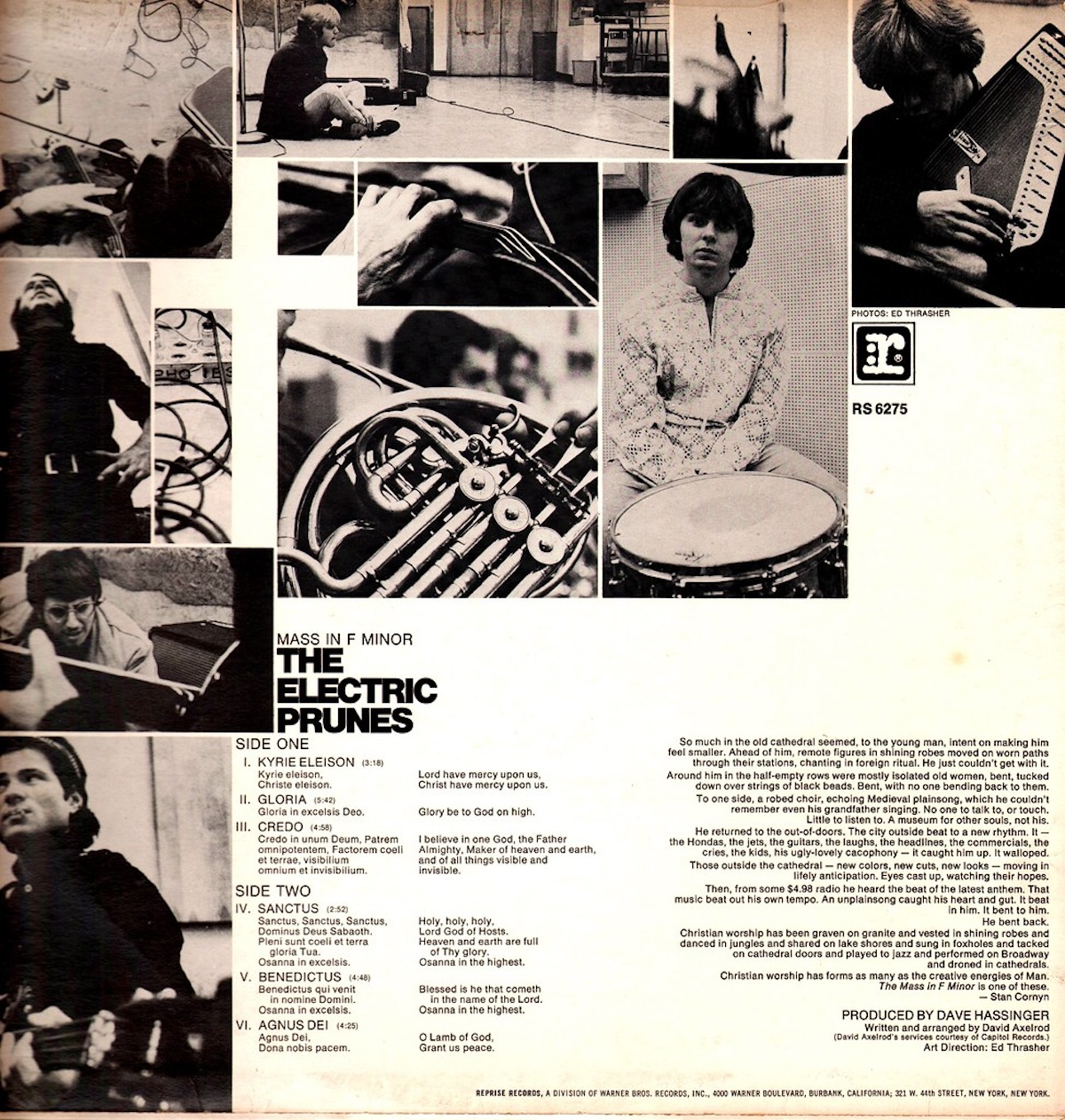
That’s it for the first side. Oh, I should mention the songs are, of course, listed with Roman numerals.
The big Side 2 opener is Sanctus, which starts like something from the original Star Trek, set in a space cathedral. That’s right, more chanting — but this time set to go-go drums and orchestral rock. Fear not, we get another acid-drenched blues guitar psychedelic freak out. Before… more chanting. Picture monks with letterman jackets. Then stick a skewer in your ear as far as it will go.
Benedictus is more of the same, except perhaps even more of a collision of pop/Gregorian chanting. This one almost waltzes. Weird. Was Frank Sinatra still running Reprise in 1968? Can’t imagine his reaction. Oooh, there is a killer Rhodes bit in this track.
The album wraps with Agnus Dei — Lamb of God in Latin — and doesn’t start with chanting for a change. This one is great by practically anyone’s standards. Best track on the album. But overall, I actually kind of dig this record.
The remaining original Prunes quit the band either during or not long after recording the album. Hassinger, who owned the name, simply assembled another group and made a followup with Axelrod, based on a Hebrew prayer, and entitled Release Of An Oath. Former Prunes frontman Lowe, went on to engineer and produce the four studio albums by Todd Rundgren’s The Nazz. He also co-produced the self-titled debut album by Sparks, and was the sole producer of their second album, A Woofer In Tweeter’s Clothing.
3 stars
• • •
Area Resident is an Ottawa-based journalist, recording artist, music collector and re-seller. Hear (and buy) his music on Bandcamp, email him HERE, follow him on Instagram and check him out on Discogs.


